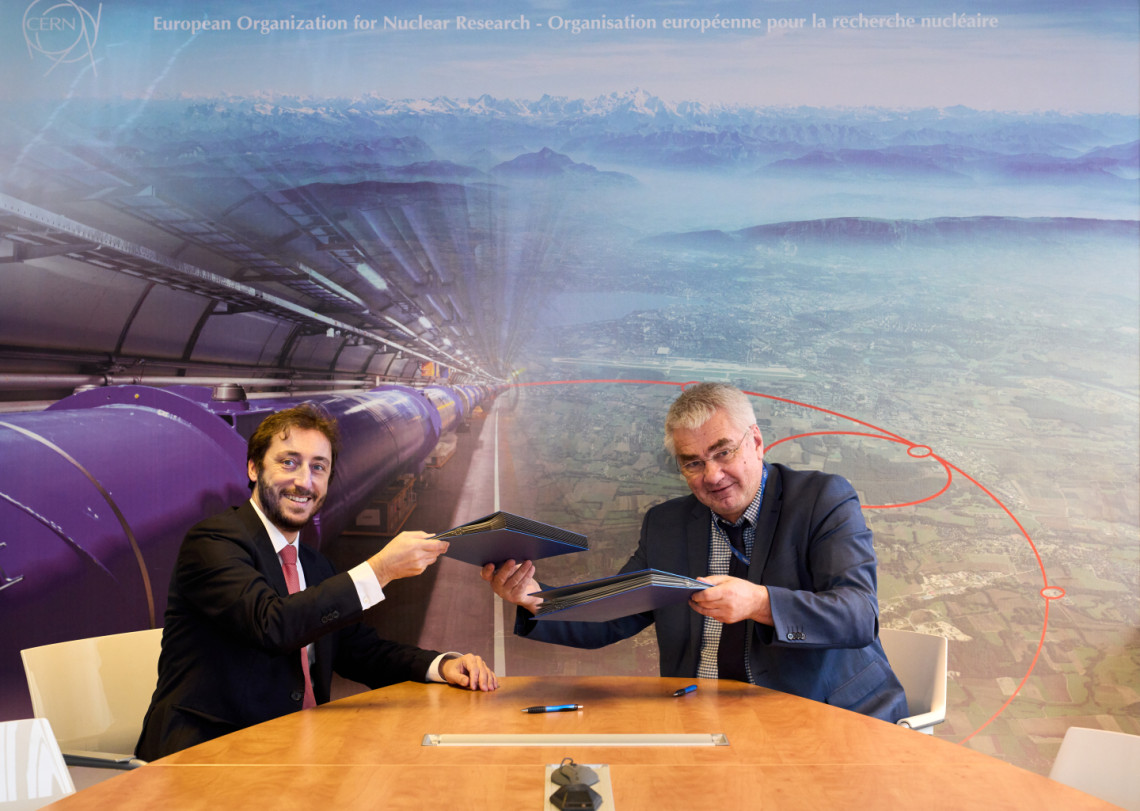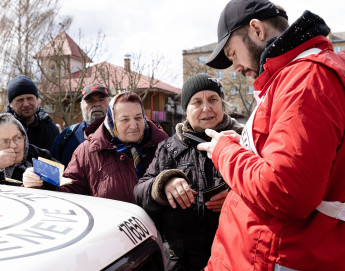
ICRC Delegation for Cyberspace and CERN to collaborate on research and development on neutral, impartial, independent, and secure technology for humanitarian action

The ICRC Delegation for Cyberspace, based in Luxembourg, aims to test technology relevant for the deployment of services to people affected by armed conflict and other situations of violence by digital means, in a neutral, impartial, and independent manner. It also aims to explore how to adapt the ICRC's way of working, as well as the work of the International Movement of the Red Cross and Red Crescent and the wider humanitarian community, for the benefit of people affected by humanitarian emergencies globally.
CERN is the home of the world's largest and most powerful particle accelerator, the Large Hadron Collider. Researchers at CERN, built on the border of France and Switzerland just outside Geneva, are working to uncover what the universe is made of and how it works. The Organization is part of the Open Science movement, which focuses on making scientific research openly accessible and creating knowledge through open tools and processes, such as open access, open data, open-source software and hardware, and open licenses.
Through this collaboration, we aim to develop new research-and-development opportunities for cooperation related to the use of free and open-source software development, as well as to cybersecurity. We will work to further the sharing of knowledge, experience and tools in this area.
We will also identify new challenges as they emerge and develop guidance to help equip the humanitarian and academic sectors with the tools necessary to navigate the. This is an important opportunity for us to further boost CERN's positive impact upon society.
The ICRC and CERN share institutional features and interests, including of neutrality, impartiality, independence, openness, data protection, and cybersecurity. The two organizations also recognize the importance of openness, and building pillars of knowledge and adequate economic, easy-to-use, and available tooling enabling them to pursue their respective mandates, from protecting vulnerable populations to advancing science.
This collaboration with CERN is an essential enabler for furthering our exploration in the area of neutrality, impartiality, and independence of humanitarian action in the digital space.
Specifically, to do this, we will work with CERN to set up their free and open-source software tools in the Delegation for Cyberspace environment and test new functionalities and tools as well as operating modalities.

